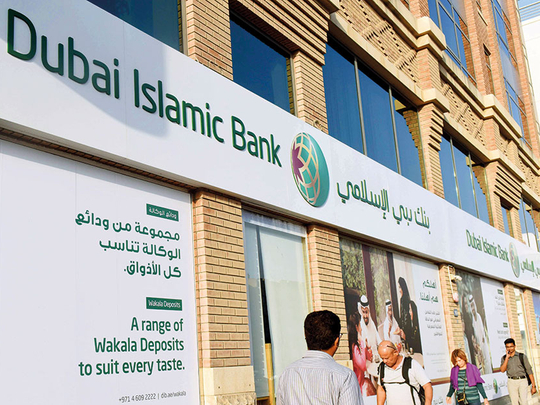
Dubai: Dubai Islamic Bank on Wednesday reported a net profit Dh4.5 billion for 2017, up 11 per cent compared to 2016 driven by a combination of robust core business growth and effective cost management.
Total income increased to Dh10.19 billion, up 18 per cent compared to Dh8.63 billion for 2016. Net operating revenue increased to Dh7.68 billion, up 14 per cent compared to Dh6.76 billion for 2016.
“The bank has weathered the challenges across the region as well as those emanating from the global economic slowdown extremely well and with a more positive outlook forecasted for the UAE and global economy, the coming years look even more promising,” said Mohammed Ibrahim Al Shaibani, Director-General of His Highness The Ruler’s Court of Dubai and Chairman of Dubai Islamic Bank.
Net revenue for 2017 amounted to Dh7.68 billion, an increase of 14 per cent compared with Dh6.76 billion in 2016. The bank’s total assets stood at Dh207.3 billion, an increase of 19 per cent, compared to Dh174.9 billion at the end of 2016.
“The UAE continues to be one of the leading Islamic finance markets, with assets now reaching around $150 billion, a 7 per cent growth this year. We remain well-positioned to capitalize on improving economic conditions in UAE, where GDP is expected to increase in 2018 in the run up towards major economic events such as the EXPO 2020,” said Dubai Islamic Bank Managing Director, Abdulla Al Hamli.
DIB’s net financing assets grew to Dh133.3 billion for 2017 from Dh114.9 billion at the end of 2016, an increase of 16 per cent driven primarily by the continued growth of core businesses. Gross corporate banking including real estate financing assets grew by 20 per cent to Dh99.3 billion whilst gross consumer business ended the year at Dh39.7 billion.
Customer deposits for 2017 increased by 20 per cent to Dh147.2 billion at the end of 2017, compared to Dh122.3 billion as at the end of 2016. Financing to deposit ratio of 91 per cent as at the end of 2017 indicates that the bank has one of the strongest liquidity positions in the sector.
The bank managed to keep its operating expenses nearly flat at Dh2.33 billion for 2017 compared to Dh2.29 billion in 2016, due to efficient cost management. This resulted in the cost to income ratio improving to 30.4 per cent compared to 34 per cent at the end of 2016.
Non-performing financing [NPF, equivalent of NPL in conventional banking] have improved consistently with NPF ratio improving to 3.4 per cent for 2017, compared to 3.9 per cent at the end of 2016. The overall coverage ratio was at 157 per cent at yearend 2017.
“The constantly improving asset quality with NPF ratio falling below even the guided level to 3.4 per cent has been the result of robust and superior underwriting,” said Dr. Adnan Chilwan, Dubai Islamic Bank Group Chief Executive Officer.
Sukuk investments increased to Dh24.0 billion in 2017 from Dh23.4 billion at the end of 2016. The portfolio, primarily built up of listed and UAE based issuers, consists of sovereigns and other top tier names, many of which are rated. Capital adequacy ratio remained robust at 17 per cent as of December 31, 2017, whilst T1 ratio stood at 16.5 per cent.












